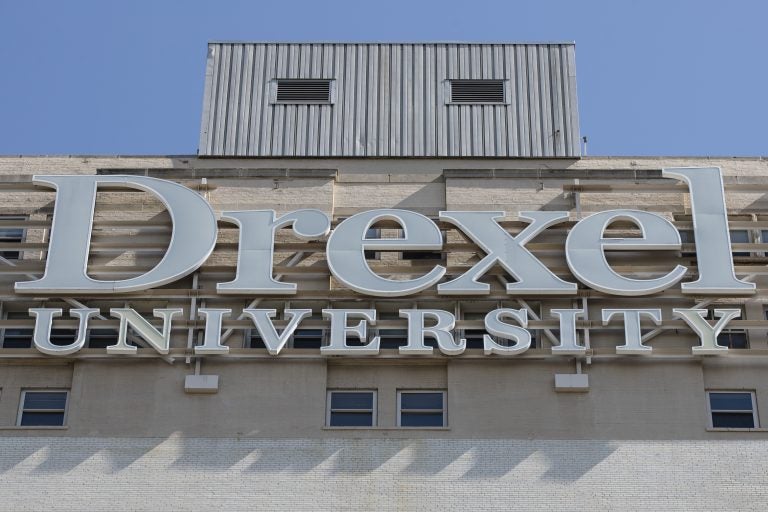Drexel reduces tuition for community college transfers
Beginning in fall 2023, Drexel University will make its bachelor’s degree programs more affordable by cutting the tuition cost in half for community college graduates from Pen

File photo: Drexel University in Philadelphia. (AP Photo/Matt Rourke)
This story originally appeared on The Philadelphia Tribune
Beginning in fall 2023, Drexel University will make its bachelor’s degree programs more affordable by cutting the tuition cost in half for community college graduates from Pennsylvania and New Jersey.
The initiative is through a new program called Drexel Promise, which aims to attract community college student transfers and help them get across the finish line to earn a bachelor’s degree.
Only 31% of community college students transfer to a four-year institution and of those who do transfer, less than half earn a bachelor’s degree within six years, according to a 2021 report by the National Student Clearinghouse Research Center.
Drexel enrolls about 650 transfer students each year. The private university has 23,217 students overall.
“We believe that higher education is the surest way for a student to move up the socioeconomic ladder,” said Evelyn Thimba, senior vice president for enrollment management at Drexel University.
“One of the things that presents a barrier for students is the cost of attendance,” she said. “We’re trying to meet the students at a place where we feel that they can take advantage of the education at Drexel.
“We feel that in partnership with community colleges, we’re providing a seamless path for students to earn their bachelor’s degree,” she added. “We’re excited to be able to make this commitment to transfer students that really aligns with our ethos and mission.”
The private school’s tuition is currently $56,595 for the 2022-23 academic year, plus an estimated additional $2,405 in fees and $16,980 for room and board. The discount, not including state and federal financial aid, will reduce the tuition to about $28,297.
Drexel Promise students will receive the same onboarding and college experience support that first-year students receive, including help understanding how their semester credits transfer into Drexel’s quarter credits.
The program also will be open to those living in Pennsylvania and New Jersey who received associate degrees through eligible online colleges. Those who receive the scholarship will need to maintain full-time enrollment and a minimum 2.0 GPA. Students will still be eligible for federal and state grants.
Drexel students with associate degrees will not be retroactively eligible. And students who qualify will not be able to get any other scholarships or aid from Drexel but can apply for state and federal financial aid.
“Transfer students play a key role in adding to the diverse fabric of our institution,” Thimba said. “They bring different experiences and ideas to the classroom. We really want to make sure that our institution supports them.
“We’re providing students with timely and accurate statements of transfer credit, so they understand the time to complete the programs and how much it’s going to cost them,” she said.
“We’ve also improved our onboarding process for transfers so that they’re really connected to the academic resources, clubs and other student engagement opportunities as soon as they arrive on campus,” she added.
Drexel has matriculation agreements with five community colleges in Pennsylvania, including Community College of Philadelphia (CCP).
Shannon McLaughlin Rooney, CCP’s vice president for enrollment management and strategic communications, said the agreement with Drexel will help their students to continue their education at a reduced cost.
“As a minority-serving institution that values making education accessible and affordable, and as one that already offers many transfer opportunities to four-year schools, including Drexel, we’re pleasantly surprised to see this arrangement move forward,” McLaughlin Rooney said in a statement.
“This tuition break will assist many of our transfer students in various programs, providing a direct pathway to a bachelor’s degree at a reduced cost,” she added.
Thimba believes that with the program’s support and following their prescribed plan of study, students will be able to earn their degrees within three to four years.
“It’s a win-win for everyone,” Thimba said. “We’re really excited that we are able to do this for students.”
WHYY is your source for fact-based, in-depth journalism and information. As a nonprofit organization, we rely on financial support from readers like you. Please give today.







